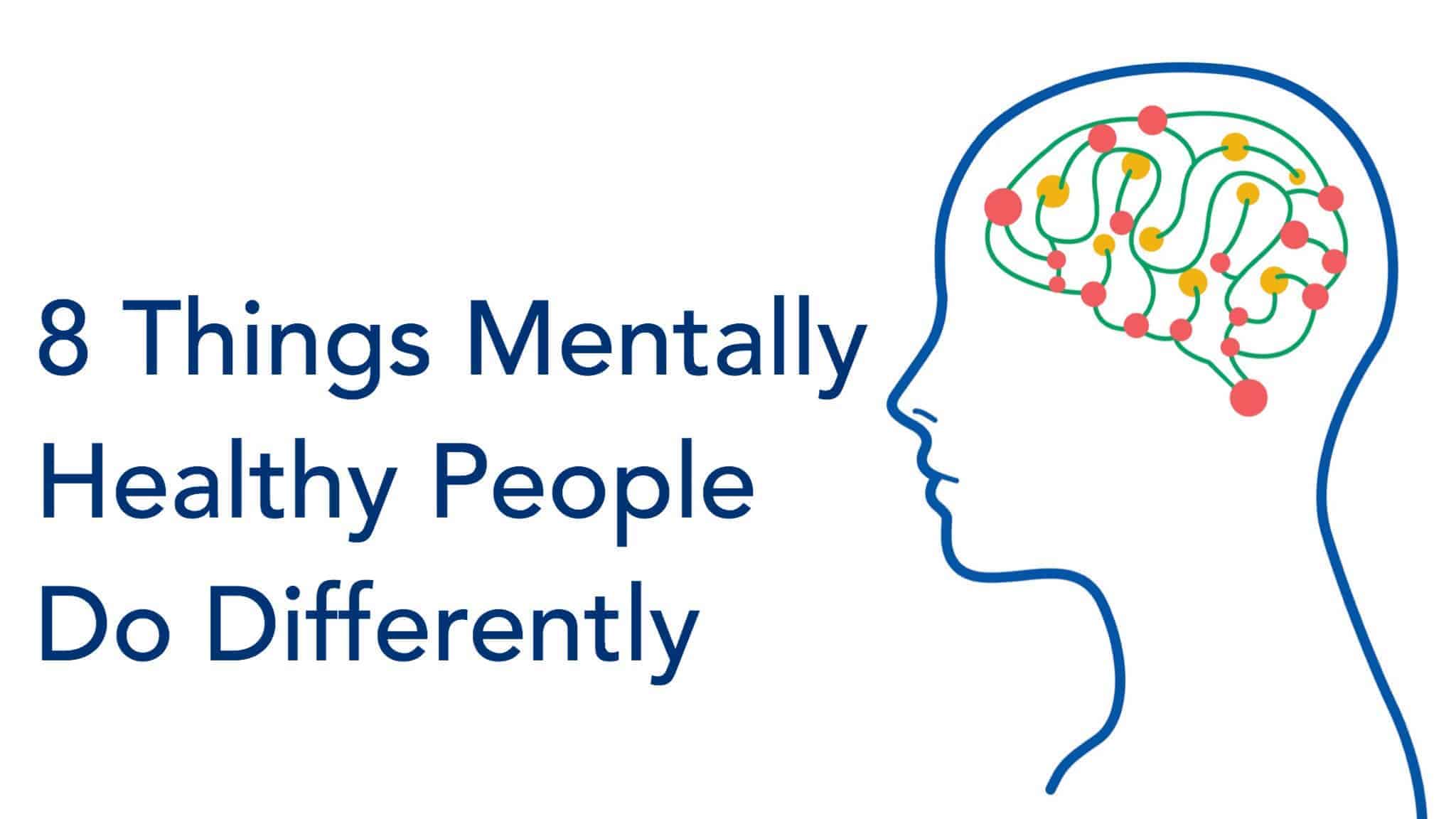Most times when we hear something, anything, being discussed about mental health, the context is usually negative. For example, we hear news anchors describe a violent act committed by someone with “mental health issues.” Less frequently discussed are the positive aspects of mental health – something that we’d like to focus on today. We believe this to be important, as research shows a steady increase in the proliferation of mental health problems.
More specifically, we discuss how mentally healthy people think.
The rationale for this article is to provide a common set of psychological traits in “mentally healthy” people; traits which can then be used as a sort-of “benchmark” for gaining potential insight into our own mental health.
First, three important side notes: (1) nobody is perfectly healthy, neither physically or mentally, (2) this piece is written for entertainment purposes, and (3) should you believe that you suffer from a psychological disorder, it is recommended to seek out help or talk to someone.
“Mental health includes our emotional, psychological, and social well-being. It affects how we think, feel, and act. It also helps determine how we handle stress, relate to others and make choices. Mental health is importance at every stage of life, from childhood and adolescence through adulthood.” – U.S. Department of Health & Human Services
Here are eight things mentally healthy people do differently:
1. They have a positive social circle
Steven Joyal, M.D., and vice president of scientific affairs and medical development at a non-profit mental health research institute, states: “The idea that social interaction is important to mental and physical health has been hinted at and studied for years.”
A meta-study by Brigham Young University analyzed 148 studies of over 300,000 subjects. They sought to learn if a positive social circle has a direct effect on mortality. Researchers concluded that this positive correlation is a direct reflection of the intangible benefits of an active social circle – namely, a circle that counteracts stress through comfort and companionship.
2. They are proactive, rather than reactive
The inclination to consistently improve oneself, as opposed to simply reacting to environmental stimuli, connects to mental health directly. Having a proactive mindset displays self-awareness and a willingness to work towards a long-term goal.
In short, a proactive mindset manifests into a positive mind state, while a reactive mindset demonstrates a lack of self-control. Furthermore, this trait that often evolves into problems with mental health.
3. They care for their body
Understanding that one’s body directly connects to one’s mind is a vital piece of knowledge. A physically active lifestyle is an ubiquitous tendency among those with a healthy state of mind.
Combining a physically active lifestyle with healthy dietary habits is a clear indication that one is mentally healthy. Those that lack either are more prone to mental health issues.
4. They possess good emotional intelligence
Emotional intelligence is simply the ability to understand emotions and their subsequent impacts on mind and body. Capably interpreting what’s going on inside your mind and body subsequently enables you to do something about them.
5. They are self-guided and productive
Being able to guide yourself in a positive way is a surefire sign of mental health. People with mental health problems are often a “victim” of their circumstances. In contrast, mentally healthy people are able to understand their situation and make something positive happen.
So set goals and make them a part of your daily life, You’ll grow more disciplined and mentally-healthy. Giving way to instant gratification and/or always feeling lethargic may indicate a problem.
6. They’re in control of their behavior
The rare ability to resist most temptations and negative impulses is a sign of mental health. Why? Because to do so requires self-knowledge, resilience, and willpower; three attributes commonly absent within those with a mental health problem.
Furthermore, you’re able to consistently adhere to a positive routine. This is important, as a positive routine is often an indication of a positive state of mind.
7. They accept themselves for who they are
Sadly, many people with a negative self-image often succumb to conditions such as anxiety and depression. Having a positive (not necessarily a “high”) sense of self-worth often indicates a healthy state of mind.
It’s important to understand that we all have things we wish to improve upon. The difference lies in the reaction to such desires. Mentally healthy people will devise a plan, whilst those not so healthy will remain in a static state of mind.
Which leads us to the final item on this list…
8. They have excellent self-realization skills
The current “situation,” whether good or bad, great or terrible, is more astutely interpreted in those with a healthy state of mind. It’s not altogether more uncommon for a mentally healthy person to find themselves in a bad scenario; they just recognize it sooner and take the appropriate, more productive actions.
Those in a negative state of mind – be it “mentally ill” or whatever – are less likely to realize the adverse situation and do something about it.



















